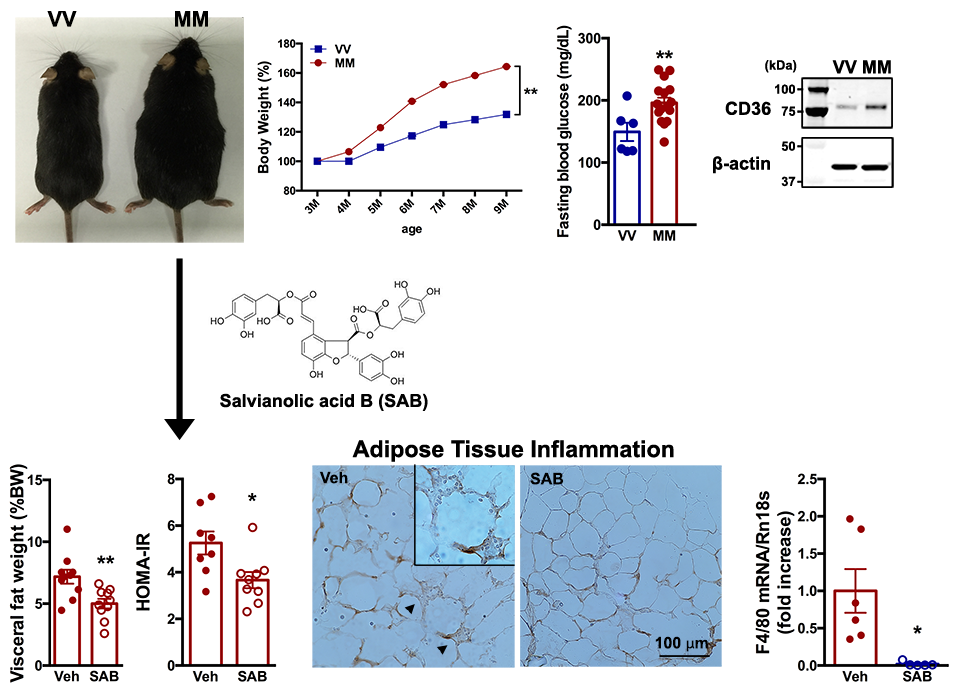You are here

JBC’s Editors’ Picks: Inhibition of CD36 reduces visceral fat accumulation and improves insulin resistance in diet-induced obese BDNF Val66Met mice
On June 18, a paper with an aim to reduce obesity authored by Burke Neurological Institute’s Preclinical Stroke Modeling Laboratory was determined to be in the top 2 percent of manuscripts with significance and overall importance for the year by the editorial board members and associate editors of the Journal of Biological Chemistry. About 50 to 100 papers are selected to be a JBC’s “Editors’ Picks” from the more than 6,600 yearly publication. This compelling paper was authored by postdoctoral fellow Jiwon Yang, Ph.D., along with postdoctoral fellow Keun Woo Park, Ph.D. and professor Sunghee Cho, Ph.D. of the Stroke Modeling Laboratory.
The team’s research highlighted the growing health concern of obesity in humans and its associated metabolic dysfunctions, and an importance of inter-genetic variability in obesity and related metabolic dysfunctions. With increasing effort to reduce obesity, this study addressed a role of multifunctional receptor CD36 in counteracting obesity. Furthermore, the Stroke Modeling Laboratory addressed how genetic variability affects development of obesity and the effect on CD36 inhibition on human brain derived neurotrophic factor single nucleotide polymorphism (BDNF SNP) carriers. The study highlights that CD36 underlies the progression of obesity-associated metabolic diseases and an importance of inter-genetic variability in obesity and related metabolic dysfunctions.




